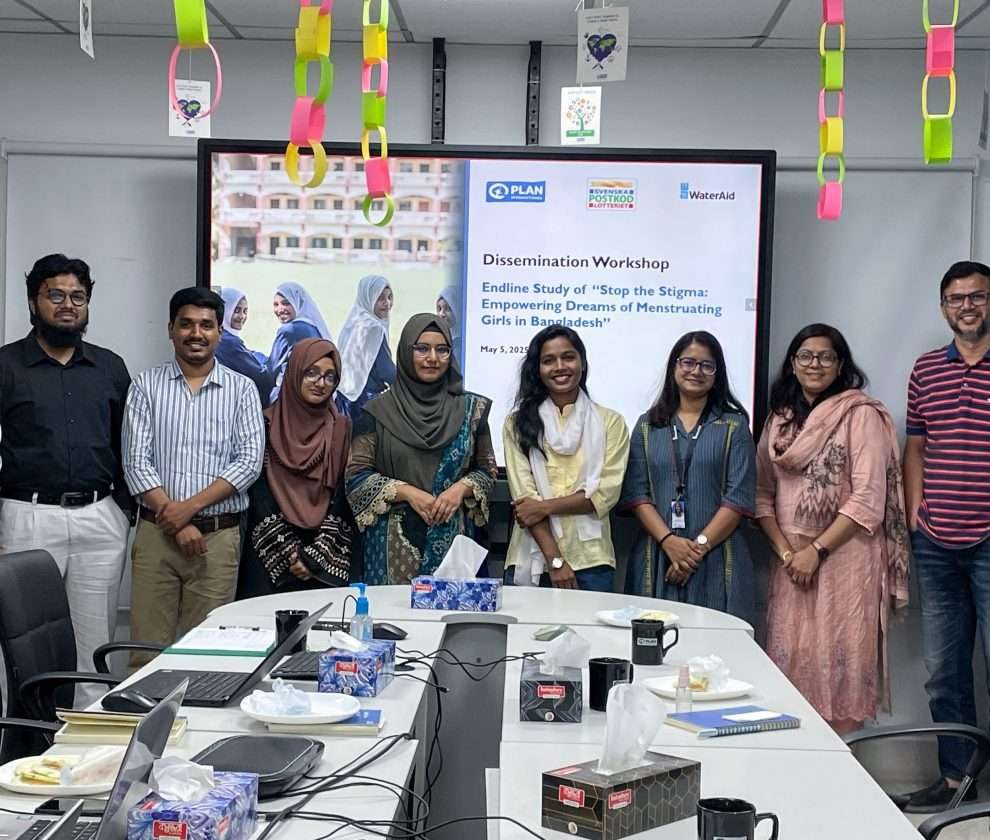On June 8th, Inspira spearheaded an insightful webinar session titled “Challenges & Opportunities of Maritime SMEs & Startups of Blue Economy” in observance of World Oceans Day. Distinguished industry experts, esteemed researchers, and influential stakeholders gathered to discuss the challenges, growth opportunities, and future prospects of ocean-based SMEs. The event featured insightful discussions from our esteemed panelists:
- Rear Admiral (Retd) Md Khurshed Alam, Secretary (Maritime Affairs Unit) at the Ministry of Foreign Affairs, delivered a keynote address as the Chief Guest.
- Dr. Md. Gulam Hussain, a renowned Senior Aquaculture Scientist,
- Dr. K M Azam Chowdhury, an esteemed expert in oceanography and maritime affairs, provided key insights on capacity development and blue economy strategies.
- Entrepreneur Zahanara Islam, the driving force behind Zahanara Green Agro, shared her expertise in the field.
- Abed Ahsan Sagar, the visionary inventor of Canned Hilsa, offered unique perspectives on innovative solutions.
- Mohammed Salman Rahman, an energy expert and Senior Partner of Inspira ACL.
- Makame Mahmud, the CEO of Sea Resources Limited, Rangs Group, addressed the importance of private sector stakeholder engagement in the Blue Economy.
- Arnob Mustafa, the Director of e-CAB Business Support Centre, shared his expertise in supporting one of the largest networks of SMEs in Bangladesh.
- The panel discussion was elegantly moderated by Jannat E Jahan, a Senior Associate at Inspira ACL
1. Highlights from the Keynote Presentation
The Chief Guest Rear Admiral (Retd) Md Khurshed Alam started his keynote speech by saying “Today, I want to emphasize the vast opportunities and challenges we face in unlocking the potential of the ocean—the Blue Economy. In 2012, we secured 108,813 square kilometers of land against Myanmar and India, marking a significant victory. However, there are still approximately $24 million worth of untapped resources in the sea. Our main challenges revolve around climate change, sustainable development goals, and harnessing marine resources. These challenges are critical for our economy’s growth and our society’s well-being.
Efficiency and competitiveness are key to our economic growth. And by prioritizing economic growth, we can outperform many countries globally. To further enhance our growth, we must move beyond the outdated 1930s GDP calculation model that prioritizes monetary gains. We need to consider both GDP and individual ecological footprint, as our overall wellness depends on environmental sustainability.
“The significance of the Blue Economy cannot be overstated. With 97% of the world’s water in the ocean, it plays a crucial role in our economic growth, social inclusion, livelihood improvement, and environmental sustainability. Bangladesh’s 664-kilometer coastline offers immense potential. We have sovereign rights over our waters, including the trees, fish, land beneath the water, seaweed, sand soil, oil, and gas. Shipping, fisheries, tourism, oil and gas, and biotechnology are key sectors of our Blue Economy”
2. Untapped Sectors of Blue Economy
Shipping is vital for our economy, but we heavily rely on importing ships, costing us approximately $9 billion every year. By expanding our fleet from 96 to 4,000 ships, we can significantly reduce costs and boost GDP growth by 1%. Tourism, a trillion-dollar industry worldwide, remains largely untapped in our country. We should attract cruise tourism and leverage our natural beauty to drive economic growth. While Myanmar and India have discovered reserves of oil and gas, we are yet to find significant deposits in our waters. Exploring these resources can provide a substantial boost to our economy.
Biotechnology, an underdeveloped sector in Bangladesh, holds promise. Through research and investments, we can harness the potential of marine resources like seaweed to develop valuable products such as agar agar and cosmetics. Our coastline is rich in minerals, including zirconia, ilmenite, kyanite, monazite, and potential gas hydrates. Responsible extraction and sustainable practices can unlock their value while preserving our environment.
3. Major Challenges of Blue Economy
Challenges such as pollution, plastic waste, and inadequate forecasting systems demand our attention. By addressing these issues through effective policies and their diligent implementation, we can overcome these obstacles. Skill development and research are crucial for progress. Establishing institutions like the Maritime University and Oceanographic Research Institute will provide us with a skilled workforce and advance our understanding of the oceans.
In conclusion, let us recognize the immense potential of the Bay of Bengal and strive to realize it. Through good governance, skill development, and embracing the opportunities of the Blue Economy, we can transform Bangladesh into a developed nation by 2041.
4. The Necessity of Government Engagement
Special Guest M. Gulam Hossain started his speech by highlighting the untapped opportunities of the government funded approaches for encouraging entrepreneurship in the Blue Economy sector. He stated that Several European countries and smaller African nations, along with Australia, have excelled in the Blue Economy sector. Bangladesh, on the other hand, lags behind without any significant projects to date. Other countries receive substantial support from international donors and financial institutions, raising the question of how to bring similar support to Bangladesh. “The lack of coordination among relevant ministries has hindered progress in the sector. While Bangladesh leads in inland fisheries worldwide, marine fisheries and the use of diverse fish species remain underdeveloped”. Gulam Hossain emphasized the need for fresh and sustainable approaches to evaluate sea resources. To attract private sector involvement, sectors like fisheries, shipping, and tourism should be entrusted to them. Overall, there are ample opportunities for Bangladesh to tap into the potential of the Blue Economy.
5. Addressing the Need for Problem-Solving Business Solutions from the SMEs & Startups
“I would say that there is actually a lot of scope for the entrepreneurs who use the young energy that we have here in the blue economy. The first thing that will be required for this is that they should have a very nice innovative idea,” stated the Chairman of Dhaka University’s Department of Oceanography, K M Azam Chowdhury. Emphasizing on the scope of attracting investors through effective presentations and feasibility of new business ideas by the entrepreneurs. Chowdhury also highlighted the need for problem-solving and market suitability in the Bangladeshi and international market. He mentioned the challenges of customer acquisition and the necessity of having a corporate mindset. Regarding sectors in the blue economy, he referenced Khurshed Alam’s suggestion to explore examples from different sectors and incorporate technology. He continued, “To make something out of the plants and animals that we find in the sea that will attract people and actually contribute to the economy, and to be able to figure out and innovate that status should have that kind of idea in mind.” He emphasized the significance of having innovative ideas supported by proper data and structural guidance to promote more small and medium enterprises (SMEs) in the sector.
6. The Need for New Business Development Strategies
The discussion was further led by Mahmuda Islam the entrepreneur of Zahanara Green Agro & the daughter of Zahanara Islam. She stated “As a young generation entrepreneur, I don’t like to apply the obsolete method of business promotion,” She emphasized the need for a proper platform, authoritative framework and policy-level guidance to promote the business on an international scale. She also highlighted the lack of micro-level data in the field of seaweed, Islam emphasized the importance of gathering necessary information to develop a business case and seek funding from the bank. She expressed the need for research and exploration to uncover new possibilities within the Blue Economy, noting the significant data gap in Bangladesh.
7. Data Dearth and Insufficient Policy Support as Roadblocks to Growth Maritime SMEs
On the other hand, Entrepreneur and Founder of Revolutionary Canned Hilsha Abed Ahsan shared his perspective on the opportunities of untapped sea resources & the challenges Maritime SMEs are facing which requires urgent attention. He said, As a second-generation business leader, I have a unique perspective on Cox’s Bazar and the sea. We focus on exporting fish products with low local demand, while also exploring innovative projects like Canned Hilsa in collaboration with Sher-E-Bangla Agricultural University. However, there are significant challenges in managing deep-sea fishing and preserving fish populations near the coast. We need better coordination and institutional support, as well as access to primary data to make informed business decisions.
Our organization has been exporting dry fish products for the past forty-one years, but we face a lack of institutional support and information. We have discovered valuable by-products from fish, such as fish scales used to create collagen powder, which has significant market potential globally. However, to develop these products into industries, it requires time, manpower, and policy support. “In order to fully exploit the opportunities presented by the blue economy, we need to address the lack of coordination and information deficiency. Monitoring and managing fishing activities in the sea is crucial, as well as developing long-term strategies for sustainable fishing practices”. Additionally, there is a need for effective management of marine tourism and resource allocation. Entrepreneurship and skill development play a vital role in the success of the blue economy. It is important for policymakers to prioritize the development of entrepreneurs and provide necessary support.
Panelist Arnob Mustafa the Director of e-CAB addressed the significance of creating awareness in the SME network of Bangladesh by saying “While the government is making efforts and planning for the blue economy, there is a need for greater market awareness at the grassroots level, particularly among MSMEs and farmers. Many are unaware of market opportunities and may be working based on hype or misinformation.”
8. The Scope of Public Private Partnership Opportunities
Panelist Makame Mahmud, CEO of Sea Resources Ltd addressed the importance of private sector stakeholder engagement in the Blue Economy saying that Marine fisheries play a significant role in Bangladesh’s blue economy. The artisanal sector accounts for 85% of the total catch, while industrial trawlers make up the remaining 15%. We represent around 10% of the industrial trawling sector alongside market players. However, “There is a pressing need for more research and understanding of the ocean’s capacity. Public-private partnerships can play a major role here. And as a private organization we are open to collaborating with the government for extensive research initiatives”. Additionally, there are opportunities to introduce new products for local consumption and export. Investment readiness and sector specific databases are important factors for ensuring constant growth and development in this sector.”
Panelist Mohammed Salman Rahman, Senior Partrner & Energy Expert acknowledged the data dearth of this sector & untapped renewable energy potential from the blue economy. He stressed the need for large-scale studies supported by government and funding agencies to unlock the potential of the Blue Economy. He emphasized the importance of conducting oceanographic surveys, fishing area surveys, and other studies to attract foreign investors. He also cited the example of renewable energy projects, such as solar and wind, in coastal areas like Cox’s Bazar and Feni, which have received funding and gained attention from the investors. He highlighted the significance of feasibility studies, market potential studies, and other research to support SMEs and startups in the sector. He also appreciated the joint efforts of all the panelists saying “Our webinar serves as an excellent starting point, where diverse stakeholders from various sectors come together to engage in meaningful discussions.This collective effort opens doors for understanding who requires what kind of data and research, enabling us to move towards effective co-facilitation as we have successfully brought together stakeholders from government policy, donor agencies, academia, private sectors of all sizes, and research agencies. .”
9. The Crucial Need for Grassroot Level Study in Garnering International Donor Recognition
Panelist Mohammed Salman Rahman, Senior Partner & Energy Expert acknowledged the data dearth of this sector & untapped renewable energy potential from the blue economy. He stressed the need for large-scale studies supported by government and funding agencies to unlock the potential of the Blue Economy. He emphasized the importance of conducting oceanographic surveys, fishing area surveys, and other studies to attract foreign investors. He also cited the example of renewable energy projects, such as solar and wind, in coastal areas like Cox’s Bazar and Feni, which have received funding and gained attention from the investors. He highlighted the significance of feasibility studies, market potential studies, and other research to support SMEs and startups in the sector. He also appreciated the joint efforts of all the panelists saying “Our webinar serves as an excellent starting point, where diverse stakeholders from various sectors come together to engage in meaningful discussions.This collective effort opens doors for understanding who requires what kind of data and research, enabling us to move towards effective co-facilitation as we have successfully brought together stakeholders from government policy, donor agencies, academia, private sectors of all sizes, and research agencies. .”
In the closing remarks, the esteemed chief guest emphasized that the victory of harnessing the potential of the sea is not limited to a select few. Instead, it rests on the collective efforts of individuals like those present in the webinar. By leveraging the talents and expertise of individuals like the participants, the nation can aspire to reach the pinnacle of development. The chief guest underscored the importance of translating the Prime Minister’s vision into tangible actions, fostering a prosperous and developed country for all.
See the full webinar here: https://fb.watch/l8dofQq6T6/




